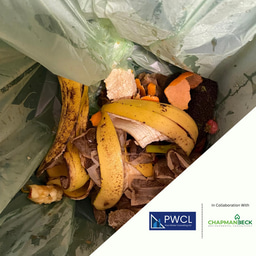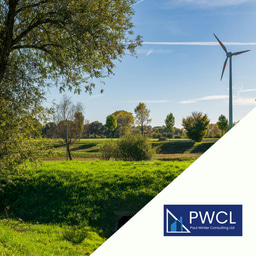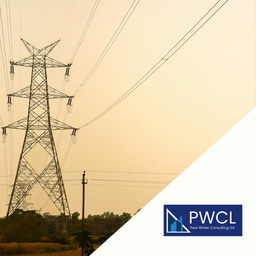The 6 Steps of Project Management for Energy-from-Waste Plants

Effective construction project management is pivotal to delivering energy-from-waste (EfW) plants on time, within budget, and to the expected environmental, commercial, and technical performance standards. The process is typically divided into six distinct phases:
- Feasibility
- Planning
- Pre-construction
- Construction
- Commissioning
- Handover
Each phase plays a critical role in ensuring the successful delivery of an EfW project, which often involves advanced engineering, strict regulatory compliance, and complex stakeholder coordination.
Feasibility: Laying the Groundwork
The feasibility stage assesses whether the proposed EfW plant is viable from technical, financial, and environmental perspectives. Key elements include:
Financial Modelling: Evaluating capital and operational expenditure, return on investment, and long-term revenue from energy sales and gate fees.
Site Analysis: Assessing the location's suitability for EfW operations, including proximity to feedstock sources, grid connection, heat off-take opportunities, and environmental impact.
Risk Assessment: Identifying regulatory, technical, and community risks, and proposing mitigation strategies.
Development of the Project Programme: Early stage development of the project programme to set out timescales for the project. These programmes are reviewed at each stage of the project process.
A comprehensive feasibility study provides the foundation for investment decisions and outlines the project's potential contribution to circular economy and decarbonisation targets.
Planning: Structuring the Project
In the planning stage, the project’s vision is translated into an actionable strategy, while securing planning permissions and environmental approvals. This stage involves:
Preliminary Design Development: Preparing early-stage process and infrastructure layouts that reflect the selected EfW technology (e.g., moving grate, gasification, anaerobic digestion).
Regulatory Approvals: Navigating planning consent, permitting (e.g., Environmental Permit under the Environmental Permitting Regulations), and consultations with local authorities and stakeholders.
Scheduling and Budgeting: Creating a programme that accounts for long lead-time items like turbines and emissions control systems, and aligning with commercial contracts such as power purchase agreements (PPAs).
Effective planning ensures stakeholder alignment and regulatory compliance while setting realistic expectations for the design and delivery of complex EfW infrastructure.
Pre-construction: Finalising Details
This phase focuses on preparing all elements necessary to initiate construction, with an emphasis on managing risks unique to EfW plants. Activities include:
Contractor and Vendor Selection: Tendering and selecting EPC (Engineering, Procurement, and Construction) contractors and technology suppliers with proven EfW experience.
Commercial Management: Development of Construction Contracts and negotiations with contractors. The Contracts are then managed and monitored during the construction phase
Procurement Planning: Securing major plant components such as boilers, flue gas treatment systems, and grid connection infrastructure.
Logistics Coordination: Planning for the delivery and handling of oversized equipment and ensuring storage and laydown areas are in place.
Risk Management: Finalising health, safety, and environmental (HSE) protocols and reviewing buildability concerns.
Thorough pre-construction planning significantly reduces the risk of programme delays, cost overruns, and compliance issues during the build.
Construction: Bringing the Plant to Life
The construction phase transforms plans into a functioning EfW facility. Given the complexity of integrating mechanical, electrical, and control systems, effective site management is essential. Key tasks include:
Site Management: Overseeing civil works, structural steel erection, and installation of EfW process equipment.
Quality Control: Ensuring installation quality aligns with regulatory requirements, especially regarding emissions and thermal efficiency.
Progress Monitoring: Tracking construction against milestones for key components such as the combustion chamber, flue gas cleaning units, and control systems.
Stakeholder Communication: Coordinating with utilities, regulators, and community representatives to keep the project on course and maintain social licence.
Skilled management ensures the plant is constructed to specification while maintaining environmental and safety standards.
Commissioning: Ensuring Operational Readiness
Commissioning is a critical phase where all systems are tested to confirm the plant operates safely, efficiently, and within permitted emission limits. It includes:
System Testing: Testing all mechanical, electrical, and process control systems, including the waste feed system, combustion process, and steam cycle.
Performance Validation: Conducting trial runs to validate throughput, energy output, emissions levels, and recovery rates.
Training: Preparing the operator’s team through comprehensive training on system control and maintenance routines.
This phase confirms that the EfW plant is ready to operate reliably and meet both regulatory requirements and commercial obligations.
Handover: Transitioning to Operations
The final phase formalises the transition from project delivery to commercial operation. Key tasks include:
Final Inspections: Conducting inspections with clients and regulatory bodies to confirm all aspects of the facility meet expectations.
Issue Resolution: Addressing any residual defects or punch-list items prior to final acceptance.
Documentation Transfer: Providing full O&M manuals, warranties, commissioning records, and regulatory certifications.
Client Orientation: Supporting the operational team in understanding plant functionality and responsibilities under environmental compliance frameworks.
A structured handover ensures that the EfW plant is ready for safe, efficient, and compliant long-term operation.
---
By diligently managing each of these six phases, construction project managers can ensure that energy-from-waste plants are delivered with precision—meeting environmental targets, commercial expectations, and community obligations.
The role of a project manager in an EfW context is to guide the project from concept through feasibility, permitting, design, construction, and operation—balancing cost, risk, and stakeholder interests at every stage. Their expertise ensures alignment between the project's technical goals, sustainability outcomes, and financial viability.
---
At Paul Winter Consulting Ltd. (PWCL), our construction professionals have extensive experience managing large-scale infrastructure projects, including energy-from-waste plants. We offer full project lifecycle services—from feasibility and permitting to construction oversight and commissioning.
Our services include, but are not limited to: feasibility and technical reporting, due diligence, environmental and planning support, commercial management, owner’s engineer services, and employer’s agent services.
With decades of collective experience and a proven track record, the award-winning team at PWCL is well-placed to deliver successful outcomes for complex and strategically important EfW developments.





Please sign in or register for FREE
If you are a registered user on Energy from Waste Network, please sign in